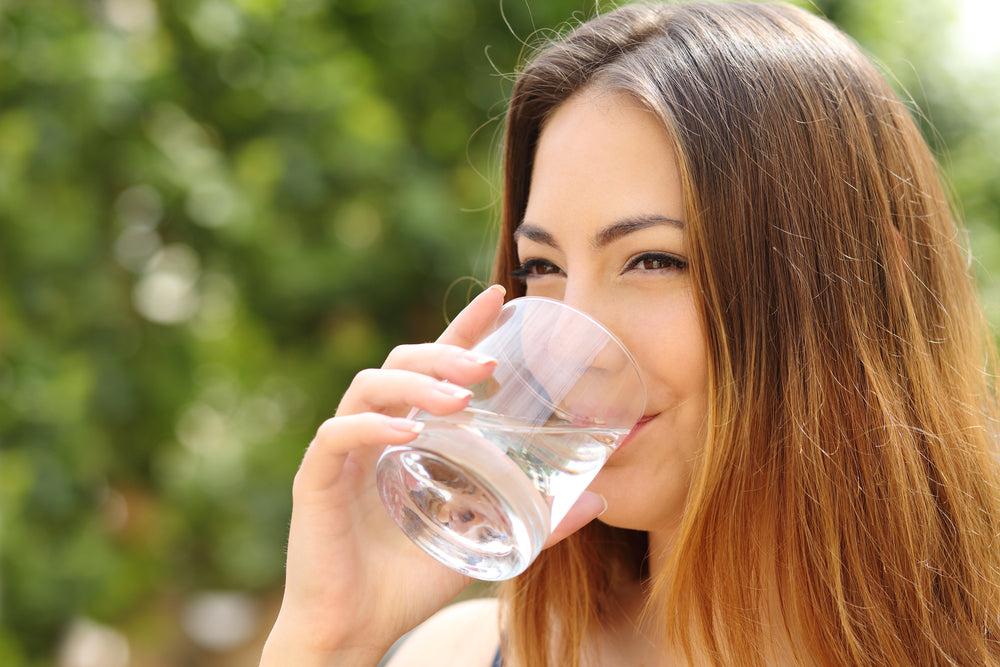
Water is an essential nutrient that plays a vital role in maintaining proper bodily function. It is involved in various functions such as nutrient transportation, thermoregulation, body lubrication, and shock absorbency. Since your body loses water throughout the day, it is important to replenish it to avoid dehydration. Some people claim that drinking water first thing in the morning offers additional health benefits compared to drinking it at other times of the day. In this article, we will explore these claims and examine what scientific research has to say about them.
Claim 1: Drinking water right after you wake up helps rehydrate your body

One common belief is that drinking water immediately upon waking up helps rehydrate the body. It is often assumed that starting the day with a glass of water is necessary because morning urine tends to be darker, indicating possible dehydration. However, urine color alone is not a reliable indicator of hydration levels.
Research has shown that although urine samples taken in the morning may be more concentrated and darker in color, this does not necessarily reflect a person’s hydration status. In fact, studies have found that despite increased water intake during the first six hours after waking up, hydration levels did not significantly improve.
The color of your morning urine is darker simply because you haven’t consumed any liquids overnight. The sensation of thirst is a sufficient mechanism throughout the day to prompt you to rehydrate when needed.
Claim 2: A glass of water before breakfast reduces your calorie intake throughout the day

There is evidence to suggest that high water consumption can help reduce daily calorie intake by increasing feelings of fullness. However, this effect is not exclusive to drinking water before breakfast and may not apply to everyone.
Studies have shown that drinking water before a meal can lead to a reduction in calorie intake at the subsequent meal. This effect was observed in older adults but not consistently seen in younger individuals. While drinking water before breakfast may not significantly reduce calorie intake in younger individuals, it still helps to keep them properly hydrated.
Claim 3: Drinking water in the morning increases weight loss
Water has been associated with weight loss due to its thermogenic effect, which refers to the energy required to warm up cold water in the digestive tract after consumption. Studies have shown that water-induced thermogenesis can increase the body’s metabolic rate by a certain percentage for a limited duration.
Increasing daily water intake has been found to result in burning additional calories over time. However, there is no evidence to suggest that this effect is limited to water consumed first thing in the morning.
Claim 4: Drinking water upon waking improves mental performance
Dehydration has been linked to decreased mental performance, affecting alertness, concentration, short-term memory, and physical performance. However, the effects of mild dehydration can be reversed by reintroducing fluids, and there is no evidence to support limiting the benefits of rehydration to the early morning.
If you want to stay mentally sharp throughout the day, it is important to maintain proper hydration levels by drinking water whenever you feel thirsty.
Claim 5: Drinking water first thing in the morning helps ‘eliminate toxins’ and improves skin health
The kidneys are responsible for regulating fluid balance and eliminating waste from the bloodstream. While adequate water intake is necessary for optimal kidney function, the amount of water you drink does not directly impact your kidneys’ ability to clear toxins from your body.
Similarly, although staying hydrated is essential for maintaining healthy skin, there is no evidence to support the claim that drinking water in the morning specifically improves skin health or prevents acne.
Claim 6: It’s best to drink hot water in the morning
Some people prefer drinking hot or warm water in the morning, believing it has soothing effects on the body. While warm water may benefit digestion in individuals with difficulties passing food and liquid through their esophagus, older studies have suggested that drinking warm water may interfere with hydration.
In extreme conditions, such as a simulated long desert walk, participants who drank warm water consumed less overall, leading to an increased risk of dehydration compared to those who drank colder water. However, it is important to note that there is limited research on this topic, and more studies are needed to draw definitive conclusions.
Claim 7: A glass of cold water in the morning jump-starts your metabolism
There is some controversy surrounding the claim that drinking cold water can boost metabolism and aid in weight loss. While one study showed a minimal increase in calories burned after consuming cold water, other studies suggest that the effect may be more significant.
Regardless of water temperature, its effect on metabolism is generally considered to be minor. There is insufficient evidence to confirm or reject either belief regarding hot or cold water’s impact on metabolism.
Conclusion
Drinking water provides numerous health benefits, regardless of whether it is consumed first thing in the morning or at other times throughout the day. Water is crucial for various bodily functions, and maintaining proper hydration is essential for overall health.
While claims about the specific benefits of drinking water in the morning exist, scientific research does not strongly support them. Urine color alone is not an accurate indicator of hydration levels, and the effects of water consumption on calorie intake, weight loss, mental performance, toxin elimination, and skin health are not necessarily dependent on drinking water in the morning.
The most important aspect of hydration is to listen to your body and drink water whenever you feel thirsty. As long as you stay hydrated and compensate for your body’s water losses, the timing of when you consume water does not significantly impact its health effects.


 Juice Concentrate
Juice Concentrate Vegetable juice
Vegetable juice Juice Milk
Juice Milk Stand Up Pouches
Stand Up Pouches









